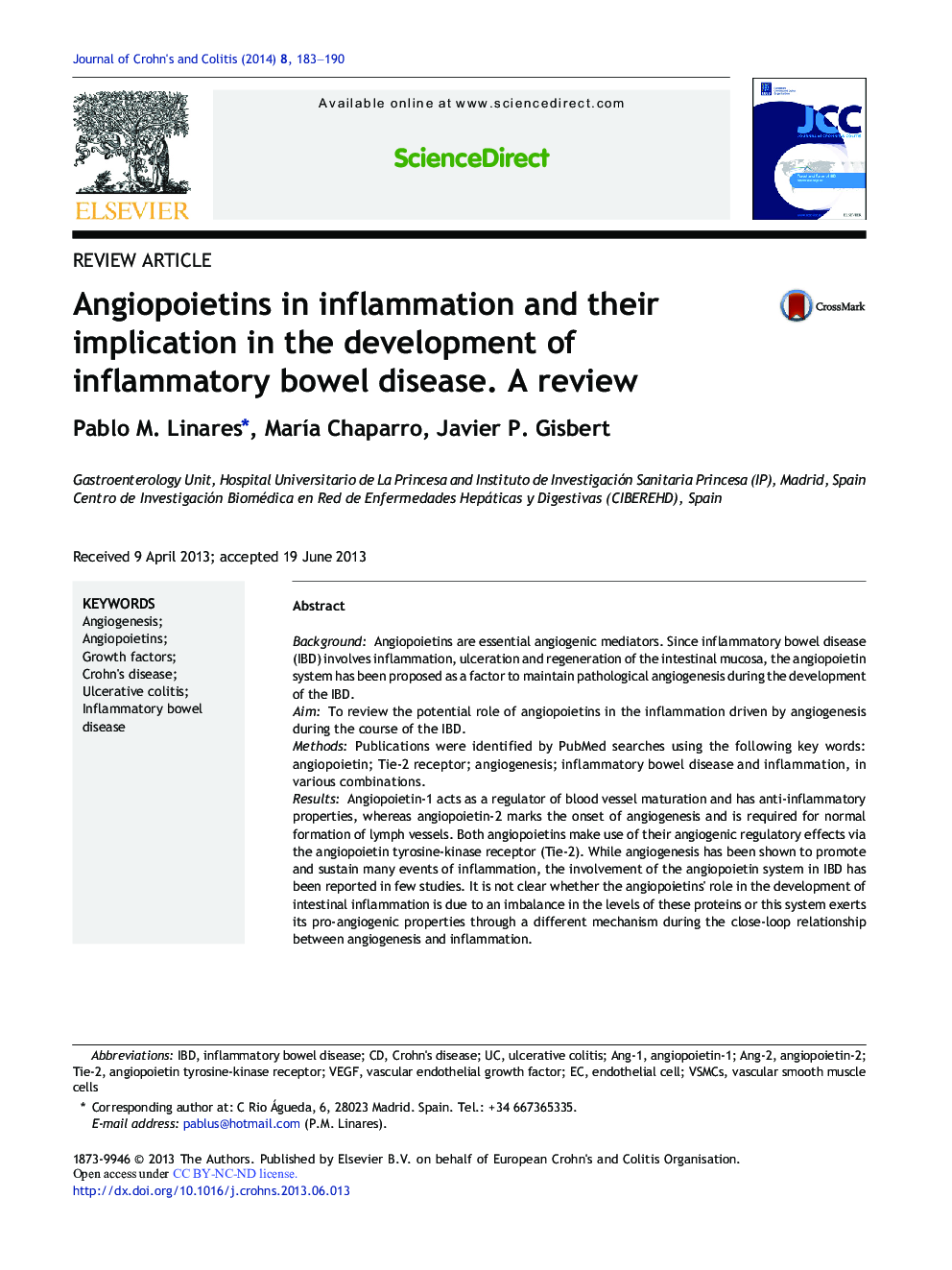| کد مقاله | کد نشریه | سال انتشار | مقاله انگلیسی | نسخه تمام متن |
|---|---|---|---|---|
| 6099324 | 1211038 | 2014 | 8 صفحه PDF | دانلود رایگان |
BackgroundAngiopoietins are essential angiogenic mediators. Since inflammatory bowel disease (IBD) involves inflammation, ulceration and regeneration of the intestinal mucosa, the angiopoietin system has been proposed as a factor to maintain pathological angiogenesis during the development of the IBD.AimTo review the potential role of angiopoietins in the inflammation driven by angiogenesis during the course of the IBD.MethodsPublications were identified by PubMed searches using the following key words: angiopoietin; Tie-2 receptor; angiogenesis; inflammatory bowel disease and inflammation, in various combinations.ResultsAngiopoietin-1 acts as a regulator of blood vessel maturation and has anti-inflammatory properties, whereas angiopoietin-2 marks the onset of angiogenesis and is required for normal formation of lymph vessels. Both angiopoietins make use of their angiogenic regulatory effects via the angiopoietin tyrosine-kinase receptor (Tie-2). While angiogenesis has been shown to promote and sustain many events of inflammation, the involvement of the angiopoietin system in IBD has been reported in few studies. It is not clear whether the angiopoietins' role in the development of intestinal inflammation is due to an imbalance in the levels of these proteins or this system exerts its pro-angiogenic properties through a different mechanism during the close-loop relationship between angiogenesis and inflammation.ConclusionsAngiopoietins have key functions in the angiogenic process, and their abnormal activation might depend on their surrounding inflamed environment. The determination of these angiogenic factors in serum and tissue could be useful for monitoring IBD progression.
Journal: Journal of Crohn's and Colitis - Volume 8, Issue 3, 1 March 2014, Pages 183-190
